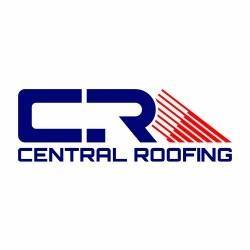
Maximizing Energy Savings and Reducing Building Maintenance with Cool Roof Technology
(YourDigitalWall Editorial):- Los Angeles, California Feb 8, 2023 (Issuewire.com) – Central Roofing, a fully insured, licensed, and bonded roofing company serving Los Angeles, Orange County, and surrounding areas, works closely with property owners in commercial roofing projects so customers can take advantage of the state’s excellent roof rebate program.
Customers have enjoyed Central Roofing’s professional roofing services for over 30 years. The California roofing specialist works with commercial properties while helping property owners receive rebates from the Los Angeles Department of Water & Power. As of this writing, the base rebate for a qualifying roof is $0.20/sq. Ft. Enhanced rebates can amount to $0.30/sq. ft.
The Cool Roof Rating Council must approve the roofing products before a commercial building qualifies for the excellent roofing rebate program.
The Cool Roof Rating Council is a nonprofit organization under section 501(c)(3). The Cool Roof Rating Council is responsible for developing credible, accurate, and fair methods for labeling and evaluating exterior wall and roofing products’ radiative properties.
A cool roof strongly reflects the sun’s rays (solar energy) and efficiently releases any heat it has absorbed. As a result, the roof is more excellent and reduces the heat transfer into the building’s interior. As a result, the temperature remains more relaxed and constant if a building lacks air conditioning.
A simple way to explain how cool roofs work is to put it like this. Cool Roofs are like wearing a white shirt on a hot summer day. The white shirt will keep cooler than a dark-colored shirt because it’s reflecting the Sun’s UV rays.
Nevertheless, a cool roof need not be white. Numerous “cool color” products employ much darker pigments that help reflect the near-infrared part of the sun’s radiation.
A cool roof has exceptional solar reflectance. The outermost layer, or the roof covering, determines whether the roof is excellent. There are cooling options for nearly all roofing materials. Generally, the cost of excellent roofing materials is comparable to that of conventional roofing materials.
Choosing a cool roof is the least expensive method of making a commercial structure cooler. In addition, certain roofing materials can be retrofitted with cool coatings, which will incur additional material and labor expenses.
White roofing materials are the coolest once exposed to the sun, reflecting up to ninety percent of the sun’s rays. Since approximately half of the sunlight arrives as near-infrared” radiation, it is possible to increase a roof’s solar reflectance by using pigments that reflect this invisible light selectively. These “cool-colored” products typically reflect 30 to 60 percent of the sun’s rays, remaining cooler than conventionally colored roofing products.
Thermal emittance and solar reflectance are the two primary traits that determine the “coolness” of a roof. Both are measured on a scale ranging from 0 to 1, with 1 indicating total emissivity or reflectivity.
The Federal Energy Management Program guides acquiring excellent roof products, a category subject to ENERGY STAR efficiency requirements. In addition, federal regulations require agencies to purchase ENERGY STAR-qualified or FEMP-designated products.
ENERGY STAR efficiency criteria are technology neutral for excellent roofing products. What this means is that there’s no technology favored. In addition, all other roofing materials are excluded from these guidelines, including those designed for walls or siding.
A roofing product is cost-effective when the total or lifetime energy savings outweigh the initial cost premium over a less efficient alternative. Therefore, ENERGY STAR takes initial costs and lifetime energy savings into account when establishing required efficiency levels.
In high-use applications or when energy rates are higher than the national average, purchasers may save more if they specify products that surpass federal efficiency standards.
Currently, the ENERGY STAR program only takes reflectance into account. A roof with a high emittance can be cooled by enhancing the release of heat via thermal radiation.
To ensure a roof with a high emissivity, property owners should avoid aluminum coatings and unpainted metal roofs. When installing a metal roof, ensure that it is painted light.
When installing a cool roof, you must consider whether the energy savings will offset the cost. The amount of energy you will save depends on various factors, including your home’s climate and environment, the insulation level of your existing roof, the roof type in question, and the efficiency level of the cooling and heating system.
For any commercial owner deciding to install a cool roof, the climate is a crucial factor to consider. Cool roofs provide the most significant savings in cooling costs in warm climates but can increase utility prices in places with colder climes due to lower heat gains in winter.
The federal government encourages commercial property owners to choose an installer with care to ensure the correct installation of a new roof coating and roof product that maximizes solar reflectance and roof durability.
To learn more visit: https://centralroof.com/cool-roof-rebates-the-ultimate-guide/



Media Contact
Central Roofing Company
310-527-6770
555 W. 182nd St


